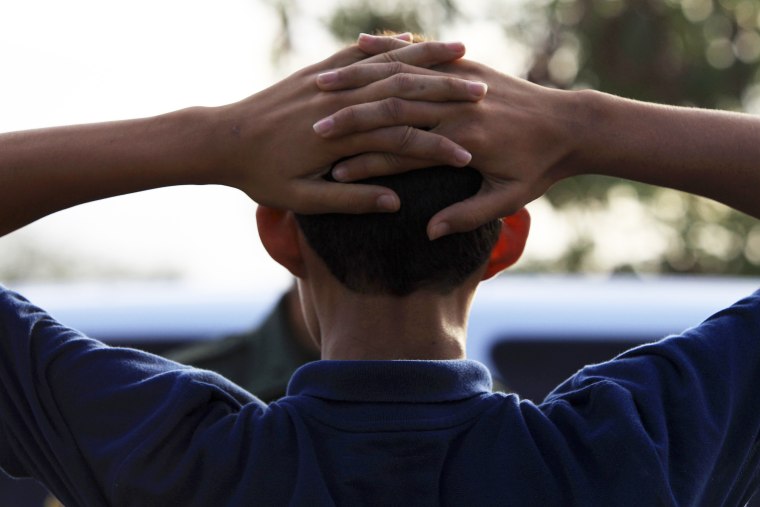McALLEN, Texas — Fourth of July celebrations here are every young child’s dream.
There’s candy and hot dogs, bouncy houses and obstacle courses. Every kid under age eight (and some older) waits in line to get temporary tattoos stamped on the back of their hands. They sit patiently, holding their breath as volunteers paint glittered American flags and bursting fireworks on their cheeks.
The city boasts about drawing roughly 25,000 people to McAllen’s Independence Day celebrations each year with events that start in the early morning and span until the firework smoke lining the night sky billows away.
By midmorning, the heat is already almost too hot to bear. Organizers start the city’s parade off early to beat the sun's fiercest hours.
A float that rolls by Archer Park to the tune of “It’s a Small World” draws a chorus of “ahhhs” from the crowd. Women walk alongside it, wearing traditional Mexican garb, as the float’s giant guitar and pair of maracas sway in the wind. Next in line in the parade is a massive piñata in the shape of the American flag.
“It brings together different cultures,” Vanessa Robledo, a volunteer, says of the parade, while rushing to fill helium balloons fast enough to keep the young children at bay. “We’re trying to build that, we’re trying to bring all of these cultures together.”
But as the city celebrates the nation’s independence, less than six miles away, hundreds of children sit in detention centers after being snatched up by Border Patrol agents along the U.S.-Mexico border. They will be held for as many as three days here, some more, after braving a treacherous journey spanning thousands of miles. Most are here alone, sent away by their families to seek safety in the U.S., only to see their dreams hit a wall at America’s gates.
"As we celebrate our freedoms we should all remember where our forefathers came from."'
It’s been over a year since the Senate passed its comprehensive immigration reform bill, and still, a nation founded by immigrants has yet to reconcile what to do with those who continue to live in the shadows. For the more than 11 million undocumented immigrants currently living in the U.S., America’s Independence Day is a bittersweet reminder of the freedoms they have almost — but not quite — achieved.
“As we celebrate our freedoms we should all remember where our forefathers came from,” said Ofelia de los Santos of the Catholic Charities of the Rio Grande Valley.
McAllen, though festive today, has been a hotbed in recent weeks as droves of unaccompanied minors coming from Central America spill across the southwestern border. Administration officials, congressmen and local lawmakers have all visited the region, which stretches to the southern-most tip of Texas, to survey border enforcement facilities overwhelmed by the children. More than 52,000 kids have been caught at the southwestern border since October last year. In the Rio Grande Valley alone, border apprehensions of children under the age of 17 have skyrocketed by 178% in just the last year.
As lawmakers and federal agencies consider ways to cope with the influx, community groups and religious leaders on the front-lines of offering humanitarian aid to the kids, and their mothers remain adamant that Independence Day should serve as a reminder of the nation’s founding principles.
“For most of us all we have to do is go back three of four generations to when we were immigrants ourselves,” said Carolyn Miles, CEO of Save the Children, an international non-profit dedicated to children’s rights.
“I think we need to keep that in mind as we think about how we do we treat these families and children the way they should be treated.”
Additional reporting by Alessandra Hickson.
